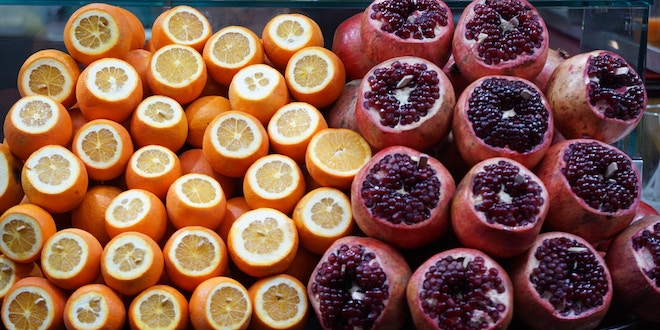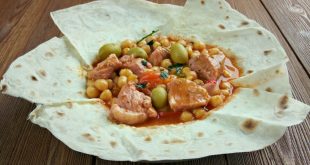Last Updated on September 5, 2023
The Middle East is a region with a rich and diverse culinary history, and two countries that exemplify this are Israel and Jordan. Both countries have been influenced by a variety of cultures over the centuries, including the ancient Egyptians, Romans, Byzantines, and Ottomans. This has resulted in a cuisine that is both delicious and fascinating. Embark on a delectable journey from the bustling streets of Tel Aviv to the enchanting kingdom of Jordan, exploring the diverse culinary traditions that have stood the test of time. One of the best ways to cover both these magnificent countries, and taste the delicacies they have to offer is to join one of the organized Petra tours from Tel Aviv.
A Culinary Journey in Tel Aviv
Tel Aviv, often referred to as the culinary capital of Israel, is a vibrant city that epitomizes modernity and innovation. Nestled along the Mediterranean coast, Tel Aviv’s food scene has been shaped by its cosmopolitan nature and its history of immigration. People from around the world have brought their culinary traditions, blending them with local ingredients and creating a true melting pot of flavors. When the State of Israel was formed in 1948 Jewish immigrants flocked to the Holy Land from the four corners of the Earth bringing with them diverse culinary cultures, from Moroccan spices and Argentinian meat dishes to European gefilte fish, and Russian borscht. Today these flavors are joined by the culinary traditions from South Africa, Ethiopia, Iraq, and other countries.
Tel Aviv Breakfast
Start your culinary journey with a classic Israeli breakfast featuring a variety of cheeses, fresh vegetables, olives, eggs, and rich tahini. For something special try “Sabich,” a pita stuffed with fried eggplant, hard-boiled eggs, hummus, tahini, and a zesty mango sauce. Or go to Tel Aviv’s joint municipality, Jaffa, and stop at Doctor Shakshuka, to try this popular Israeli dish of eggs cooked in tomatoes and loaded with spices.
Tel Aviv Lunch
At lunchtime head to the famous Carmel Market, where a delightful array of spices, herbs, and colorful fruits awaits you. Try out the quintessential street foods of Tel Aviv – falafel or shawarma in pita bread with all the toppings.
Most of the traditional street foods of Tel Aviv have a history going back 50 or 100 years, but if you’d like to try something a little more modern then you have plenty of options. Modern Tel Aviv cuisine is a testament to the city’s dynamic and progressive spirit. Tel Aviv has become a hotbed for culinary fusion, with talented chefs reimagining classic Middle Eastern dishes and even winning converted international awards.
Before it’s time for your evening meal, you might fancy some of Israel’s incredible pastries. The most popular is rugelach, a chocolate-filled dough rolled up in a crescent shape with its roots in Poland.
Tel Aviv Dinner
For dinner try one of the many bars that double as an eatery, or stop at one of Tel Aviv’s cafes that serve meals into the night. Hot spots for nighttime eateries in Tel Aviv include the market area of Jaffa, Allenby Street, Rothschild Street, and the Tel Aviv Port.
Must-Try Tel Aviv Restaurants
OCD – A culinary experience, award-winning restaurant with a set 18-course tasting menu that will blow your mind.
Mashya – Contemporary and innovative, mouthwatering lamb knafeh, ricotta parmesan dumplings, and slow-cooked oxtail.
Claro – farm-to-table using seasonal ingredients.
Yaffo-Tel Aviv – contemporary Israeli cooking at its finest.
Must-Try Tel Aviv Foods
- Falafel
- Hummus
- Tachini
- Shakshuka
- Sabich
A Culinary Journey in Jordan
While both Tel Aviv and Jordan have unique culinary identities, their cuisines share common threads that reflect the region’s history and geography. For example, you’ll find generous use of olive oil, fragrant spices, and a love of fresh vegetables and grains. Moreover, the hospitality of the people in both regions is an essential aspect of their food culture. Whether in the lively streets of Tel Aviv or the warm desert sands of Jordan, sharing a meal with locals is an invitation into their world, a chance to learn about their traditions, and a glimpse into their way of life. Jordan’s cuisine is deeply rooted in its Bedouin traditions and influenced by the culinary practices of neighboring countries.
Breakfast in Jordan
For your first meal explore the bustling street markets of Amman, where merchants sell an array of traditional Jordanian sweets like “Knafeh” and “Muhallabieh.” The aroma of cardamom, rosewater, and pistachios will beckon you to indulge in these delightful treats. And wash it down with black coffee or tea spiced with cardamom.
Lunch in Jordan
For lunch why not try one of the street foods like fuul (fava beans) on a bed of hummus. Or fatteh,a dish of layered chickpeas and pita that have been soaked to make them soft and soupy then topped with tahini. Although it is found across the Middle East, Jordanian shawarma is considered particularly good. Tender slices of marinated meat (usually chicken or lamb) are slow-cooked on a vertical rotisserie and then shaved off to be served in a warm pita or flatbread, accompanied by fresh vegetables and flavorful sauces.
And for something sweet try Knafeh. It consists of layers of shredded phyllo pastry, creamy cheese, and sweet syrup. The dish is baked to perfection, resulting in a crispy and gooey texture that is beloved by locals and visitors alike.
Dinner in Jordan
In addition to the main dishes, Jordan offers a rich array of mezze (appetizers), which include delights like baba ganoush, falafel, and stuffed grape leaves. As you explore Jordanian cuisine, you’ll find a fusion of flavors that reflects the country’s historical and geographical significance, making it an unforgettable culinary journey through this ancient and captivating land.
For your main meal of the day (which could be lunch or dinner) you’ll be offered a menu consisting mainly of meat dishes. It could be a simple chicken stew, kebabs, beef, or sumptuous lamb. In both the simple and more expensive restaurants you could be served goat or camel meat. And the most popular side dish is rice, which is often cooked in the same pot as the meat. One of the delicious one-pot dishes is Makloubeh featuring layers of meat, rice, and vegetables cooked together and then flipped upside down (makloubeh means upside down).
The traditional Jordanian “Mansaf” is a must-try. It is a dish of fragrant rice topped with tender lamb cooked in fermented yogurt, garnished with pine nuts and almonds. Experience the warmth of Bedouin hospitality with “Zarb,” a unique Bedouin barbecue, where meat, vegetables, and rice are slow-cooked underground in a sand oven.
Beyond the traditional, Jordanian cuisine also boasts a range of modern dishes that reflect the evolving tastes of its people. Upscale restaurants in Amman offer a blend of authentic flavors with contemporary twists, creating a culinary experience that satisfies both the traditionalist and the modern food connoisseur.
Must-Try Jordanian Restaurants
Fakhreldin – An award-winning fine-dining restaurant serving a huge menu of cuisine mainly from Lebanon.
Sufra – A high-end restaurant in a historic building, serving traditional Jordanian cuisine such as mansaf.
Alee – Named one of the top 50 restaurants in the Middle East and North Africa for 2023, it is a modern innovative restaurant run by chef Ali Ghzawi, winner of Top Chef Arabia 2019.
Haret Jdoudna – This restaurant serves authentic village cuisine and traditional Jordanian food with local mezze dishes, oven-baked dishes, and homemade meals.
Al Quds – With a menu of traditional Jordanian dishes, large portions, and an inviting environment, this is one of Amman’s most popular restaurants.
Must-Try Jordanian Foods
- Ka’ak bread
- Labneh yogurt
- Zarb
- Makmoura, layers of chicken and onions baked under a cover of pastry
- Galayet Bandora fried tomatoes
- Mansaf
 Travel for Food Hub The Food Blog for Travel Lovers
Travel for Food Hub The Food Blog for Travel Lovers
















